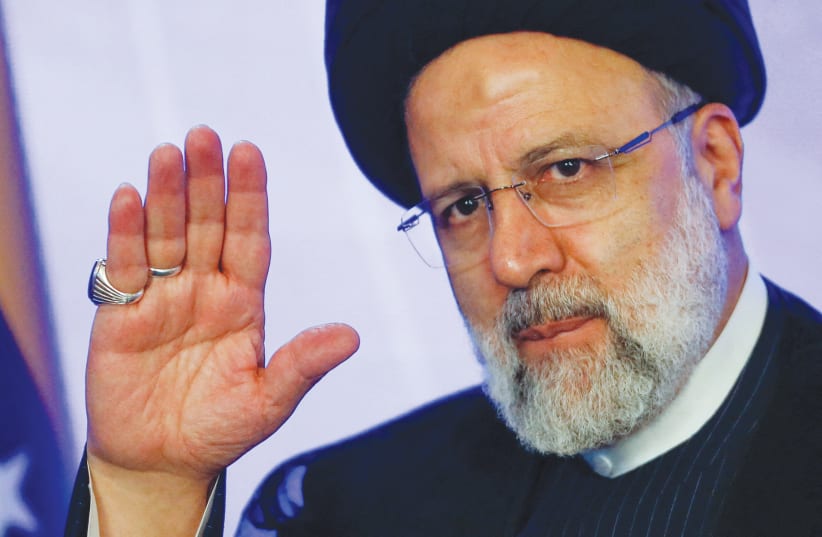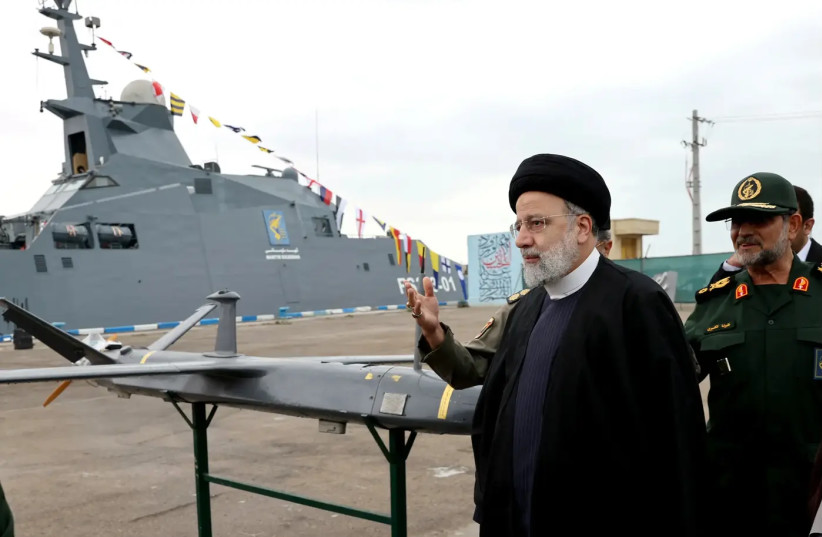Iran’s president, Ebrahim Raisi, the tyrant, the blood-stained executioner and oppressor, the notorious butcher of Tehran is dead.
The regime’s strategy was to gradually disclose the news of Raisi’s downfall – even as Ayatollah Ali Khamenei called for prayers – to ensure that security and military forces were strategically deployed on the streets in anticipation of the public’s jubilation over the ousting of one of the most reviled and lethal mullahs.
Finally, Raisi’s death was announced.
Nevertheless, Iran is slipping away. The current regime in Iran does not align with the historical, cultural, or societal realities of the Iranian people – it does not represent them.
Indeed, the people of Iran are prisoners within a vast, brutal, demonic trap set by the Islamic authority of Shiite mullahs. The exclusive keepers of Islam have dubbed Islamic terrorism as Islamic “awakening,” and today, the Iranians are the forgotten and sacrificed souls of the 21st century. Yet, the fires of affection and truth burn, perpetually, in the hearts of the Iranian people.
It is a national and humanitarian duty for every patriotic Iranian to be at the forefront of the charge, to carry the banner in the fight. Therefore, Iranians, standing at the crossroads of life and death, heed the words of their national poet Ferdowsi, noting that it is not honorable to enter the arena after the adversary or to remain in the spectacle of the adversary’s demise.
The people of Iran are epic creators. They have taken to the streets multiple times during the dark era of Raisi’s tenure, protesting courageously and paying with their lives. Their vibrant and dynamic youth, neither helpless nor feeble, rejoices at the removal of one obstacle from their path to democracy.
Though many in the opposition contemplate the death of Khamenei, just as they awaited former ayatollah Ruhollah Khomeini’s end with no plan in place, the death of Raisi truly solves none of Iran’s real problems.
The regime has sent thousands of young people to the slaughterhouse because its mission is one of destruction and death. The Islamic Republic is reminiscent of the Safavid era (1501-1736) when hundreds of humiliated and tormented thinkers, writers, and orators left Iran to escape the clerical class.
Iran is wounded and gasping for air.
An emergency state exists in the country because it is a critical moment for the fast-sinking storm-swept ship. Never before has Iranian society been as volatile as it is today. The nation’s backbone has been broken by the calamity of its clerical rule. The country has been recklessly plundered. It has become a third-world country in a most dismal state, all of its achievements in decline. The current crisis in Iranian society is a political crisis, a social fabric crisis, a national identity crisis, and a crisis of cultural authenticity. It is a true tragedy for the Iranian people.
The undeniable truths before our eyes reveal that the lifeline of the mullahs and the homicidal, thieving, pickpocketing clerics has been shattered. The ruling regime in Iran today – those so-called divine representatives on Earth – is a disgrace to the history and culture of the Iranian people and has been a nightmare for the nation for 45 years. To be precise, for 16,425 days.
The Islamic Republic of Iran, afflicted by demons, disaster, and devastation, is traversing the downward slope of collapse. It is on the brink of annihilation, and its government is decaying and nearing the end of its life. Naturally, the enduring reality is that the archaic and barbaric system is doomed to fail.
A disheartened, skeptical, hopeless, and demoralized society under clerical dominance is contemplating a national uprising. At any moment, millions might flood the streets and bring matters to a conclusion. Indeed, the groundwork for an Iranian uprising is being laid.
THE AFFLICTED and scarred nation of Iran seeks a solution to end the nightmare rule. Amid the current chaos, the hearts of the sorrowful, grieving, and angry Iranian people yearn for liberation from the regime of death and terror, aspiring to return to their national pride and their pre-1979 cultural authenticity.
Disheartened, regretful, weary, and pained Iranians – both at home and abroad – await the end of this dark night. The Iranian people’s realism has increased following successive disasters, and Iran is on a path determined by fate. In a realistic assessment, the regime’s bluffs are laughable, its ugly and destructive face is known to the world – and the cudgel-bearers of the Islamic world are recognized as merely paper tigers.
All of the mullahs’ power lies in bluster and exaggeration. Now, the conditions are ripe for a fall, and naturally, on the global stage, the beginning of the downfall of the oppressive and ominous authoritarian regime is celebrated. The world has long understood that coexistence with these turbaned rulers is not possible. For years, the only sound heard from the Islamic Republic has been the wild cry of savagery.
Iranian people may have a chance of victory
However, the people of Iran have a significant chance of victory. This nation always harbors dormant abilities with its resilient patriotism and disdain for weakness. Although rebuilding Iran on the ruins of the Islamic Republic is a long road, if a Pahlavi, a member of the former ruling family, steers this storm-ridden ship, the journey will be smoother.
The younger generation, a knowledgeable, positive, and intellectual generation carries the responsibility for its own destiny, history, and culture. Despite the corrupt clerical regime, this generation is familiar with good thoughts, words, and deeds, and the key to any fundamental transformation in Iran, today and tomorrow, lies in its hands.
This generation wants to rebuild Iran after its collapse. The battle is fated, and the youth are to be the epic creators of today’s Iranian history. Iranians seek justice and rule of law, liberated from the shackles of the wild clerical mafia – tyrannical, barbaric, and criminal rulers.
The announcement of Raisi’s death is not significant at all. It doesn’t matter to Khamenei or the Shi’ite mullah’s regime either.
From the perspective of the Iranian people, his presence or absence makes no difference.
The writer is a counterterrorism analyst and Middle East studies researcher based in Washington, with particular focus on Iran and ethnic conflicts in the region. His new book is The Black Shabbat, published in the US. You can follow him at erfanfard.com and on X @EQFARD.

